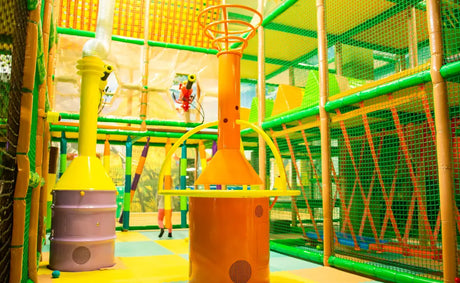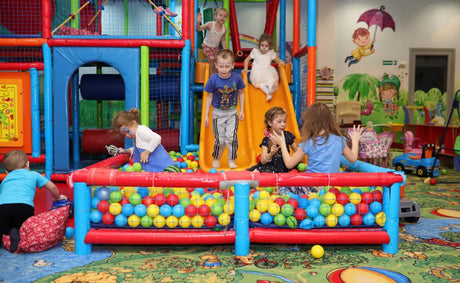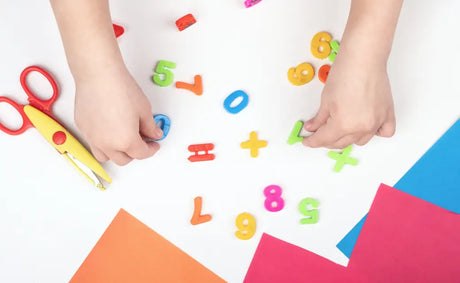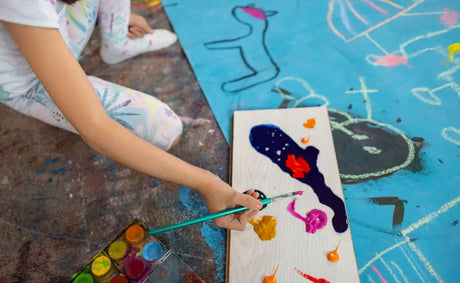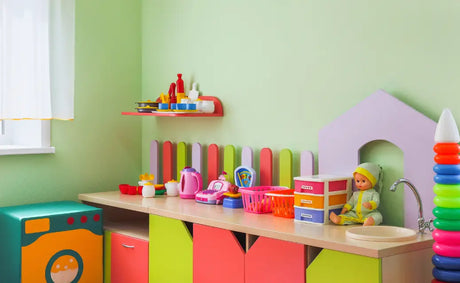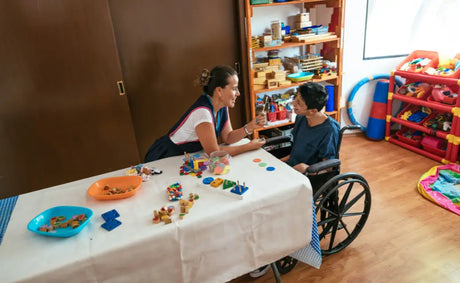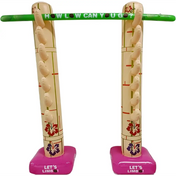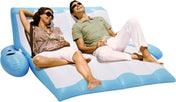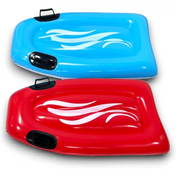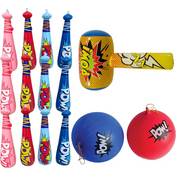Educational toys play a vital role in supporting the development of children with special needs. The right toys can help improve cognitive, social, and motor skills while addressing specific challenges like autism, ADHD, or sensory processing disorders. Parents and educators are always searching for toys that combine fun with learning, offering tailored support to children with different needs.
In this guide, we’ve highlighted toys specifically chosen for their ability to provide important learning experiences. These toys are designed to make learning enjoyable while helping children with special needs grow and thrive.
1. Sensory Toys for Enhancing Tactile Exploration
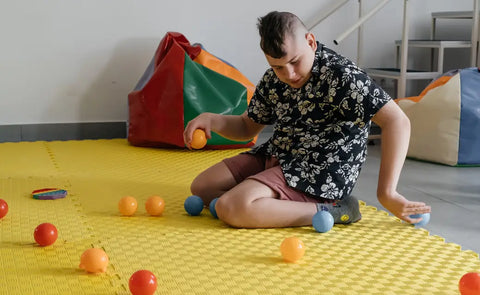
Tactile play is especially important for children with sensory processing challenges, such as those on the autism spectrum. Toys like textured blocks, squishy balls, and playdough sets can stimulate a child’s sense of touch, encouraging sensory engagement while helping them feel more comfortable.
These toys not only promote sensory exploration but can also help calm overstimulation. As children play with these items, they develop fine motor skills, improving their hand-eye coordination while managing sensory overload safely and enjoyably.
2. Toys that Promote Fine Motor Skills Development
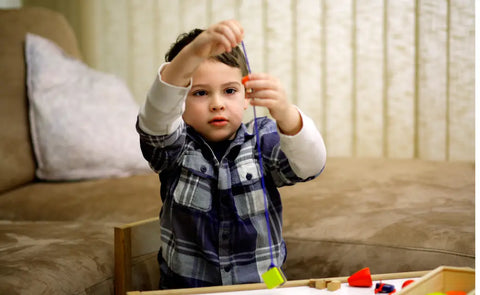
Toys that help develop fine motor skills are especially valuable for children with special needs, as these skills are often delayed. Options like pegboards, threading beads, or magnetic building sets require precision and encourage hand-eye coordination.
These toys help improve hand strength, dexterity, and grasping abilities in a fun and engaging way. As children play with these items, they build essential motor skills that support everyday tasks, all while staying entertained and motivated to keep learning.
3. Interactive Learning Toys for Cognitive Growth
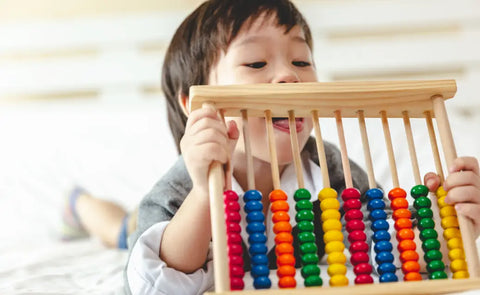
Interactive learning toys are great for promoting problem-solving, memory skills, and logical thinking in children with developmental delays or intellectual disabilities. Examples include electronic learning pads, talking puzzles, and cause-and-effect toys that provide immediate feedback, helping children learn independently.
These toys can be adjusted to suit different learning levels, ensuring that each child receives the right amount of cognitive stimulation at their own pace. By engaging with these toys, children can build important cognitive skills while enjoying the process of discovery and learning.
4. Speech and Language Development Toys
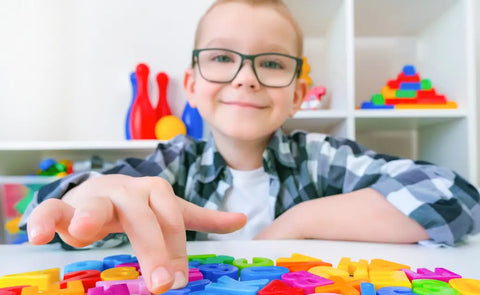
Toys designed to support speech and language development are essential for children with speech delays or non-verbal tendencies. Examples include picture boards, interactive storytelling kits, and voice-recording buttons, all of which help kids express their needs and practice language skills in a fun, engaging way.
These toys create opportunities for children to improve both verbal and non-verbal communication, while also encouraging self-expression. By playing with these tools, kids can develop confidence in their communication abilities, making learning enjoyable and meaningful.
5. Toys for Enhancing Social Skills
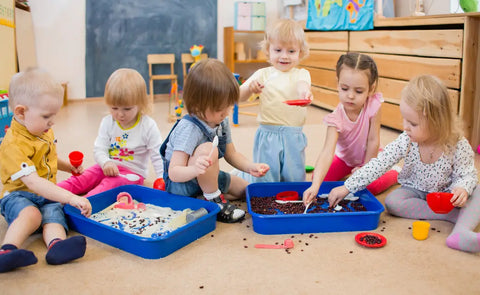
Social interaction is crucial for children with autism or social anxiety, and certain toys can help encourage cooperative play. Board games, role-playing sets, and group puzzles are great options for helping kids practice taking turns, sharing, and communicating with others.
These toys provide a fun and non-threatening way for children to learn important social cues, such as making eye contact or waiting their turn. By engaging with peers through play, children can develop stronger social skills, promoting teamwork and positive interactions.
6. Adaptive Toys for Gross Motor Development

Adaptive toys are essential for children with physical disabilities or mobility challenges, as they help improve gross motor skills and physical coordination. Toys like ride-on vehicles, adaptive tricycles, and soft climbing structures provide safe and supportive ways for kids to take on physical challenges.
These toys not only promote physical fitness but also boost a child’s confidence as they reach important milestones in gross motor activities. By using these toys, children can enjoy active play while developing their strength and coordination.
7. Visual and Auditory Stimulation Toys
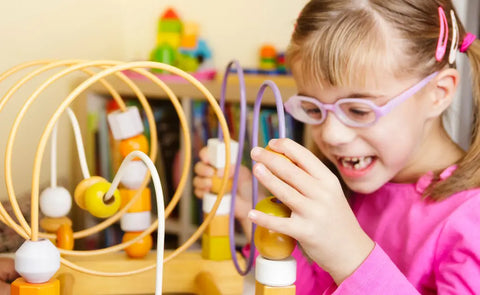
Toys that engage the visual and auditory senses are especially helpful for children with sensory impairments or sensitivities. Toys like musical instruments, light-up toys, and sound-emitting sensory boards offer multisensory experiences that enhance both auditory and visual processing skills.
These toys can have a calming effect on children who need specific sensory input while also providing educational benefits. By playing with these stimulating toys, kids can develop their sensory skills in a fun and supportive way.
8. Emotional Regulation Toys for Special Needs
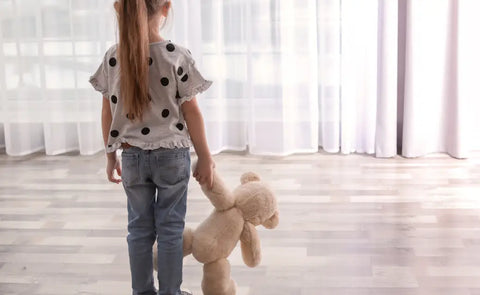
Toys can play a key role in helping children manage emotional outbursts, anxiety, or frustration, especially those with emotional regulation challenges like ADHD. Items such as fidget spinners, weighted blankets, breathing balls and sensory sands are great tools for providing stress relief and helping children self-soothe during difficult moments.
These toys offer emotional comfort while teaching kids how to regulate their emotions in different situations. By using these tools, children can learn calming strategies that help them feel more in control and better able to manage their feelings.
9. Toys for Encouraging Independence
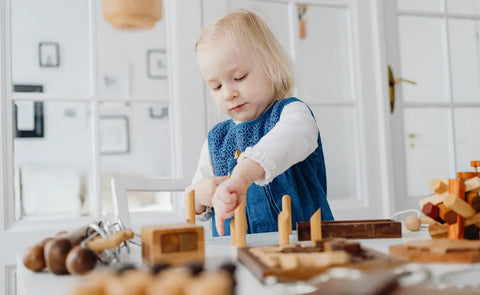
Toys that promote independence are valuable for children with special needs, helping them learn to complete tasks on their own while building confidence and self-sufficiency. Examples include puzzle games, Montessori-style task boards, and interactive learning mats that challenge kids to solve problems or finish activities independently.
These toys encourage decision-making and responsibility in a structured, supportive environment, fostering autonomy. As children complete tasks, they gain a sense of accomplishment, boosting their confidence to tackle more challenges on their own.
10. Toys That Encourage Sensory Integration Therapy
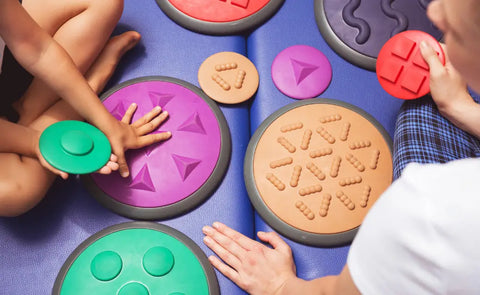
Sensory integration therapy is becoming increasingly popular for children with autism or Sensory Processing Disorder (SPD), and toys play a key role in this approach. Items like sensory swings, balance boards, and weighted vests can be part of sensory routines, helping children improve body awareness and balance.
These toys not only help calm hyperactive behavior but also enhance a child’s ability to process sensory information more effectively. By using these tools, kids can experience a more balanced and calming sensory environment, making it easier for them to focus and engage.
Conclusion
Choosing the right educational toys for children with special needs is crucial for supporting their unique development. These toys not only offer educational benefits but also help foster emotional, social, and cognitive growth.
By considering your child's individual needs when selecting toys, you can ensure that they are both engaging and beneficial. The right toys can make learning fun while promoting essential skills, helping children grow and thrive.
Check our collection of home party decors to add a special touch to your upcoming event or celebration. Shop now and discover unique pieces that will make your occasion unforgettable!



